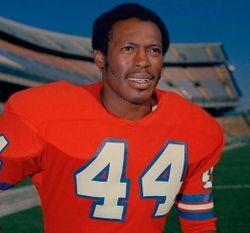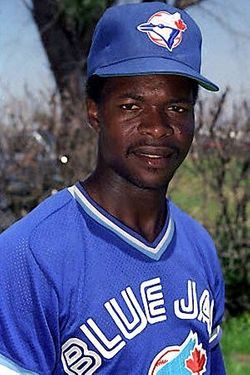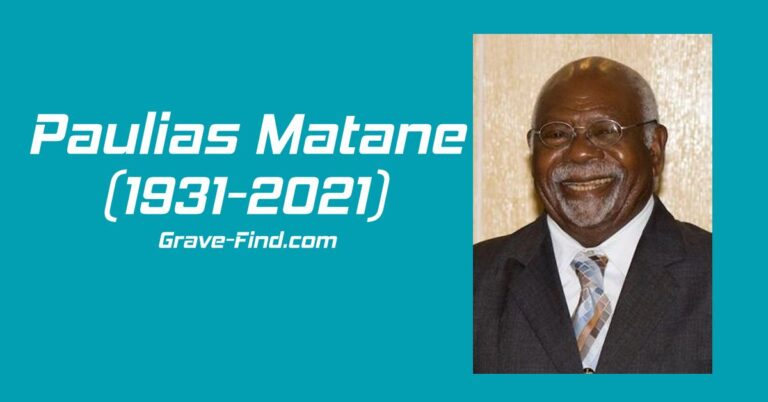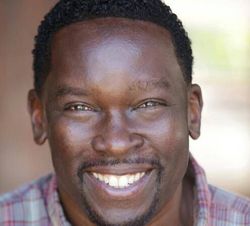Todd Akin (1947-2021) American Politician
Todd Akin (1947-2021) American Politician
| Name | Todd Akin |
| Full Name | William Todd Akin |
| Age | 74 Years |
| Birth | 5 July 1947 |
| Birthplace | New York, New York County (Manhattan), New York, USA |
| Death | 3 October 2021 |
| Deathplace | Wildwood, St. Louis County, Missouri, United States |
| Profession | Member of the U.S. House of Representatives from Missouri’s 2nd district |
| Party | Republican Party |
| Burial | Burial Details Unknown |
| Nationality | American |
Todd Akin American Politician (1947-2021)
U.S. Congressman. He was a member of the U.S. House of Representatives from Missouri’s 2nd district from January 3, 2001 until January 3, 2013. He received his bachelors degree from Worcester Polytechnic Institute. He grew up in the St. Louis area. After college he served in the Army Corps of Engineers.
In 1988 he was elected to the Missouri House of Representatives 85th. district where he served from January 3, 1989 until January 3, 1993. After serving this term he ran for the 86th district and won it, serving another term in the Missouri House of Representatives from January 3, 1993 until January 3, 2001. His Congressional career ended when he ran for a Senate seat in 2012 and was defeated.
His parents were Nancy Perry Akin and Paul Bigelow Akin. After leaving the service he sold large computers for IBM and then worked in the families steel business. In 1984 he earned a Master of Divinity degree from Covenant Theological Seminary. He was married to Lulli Boe and together they had 6 children.
Todd Akin Life, Education and Business Career
Akin was born in New York City, and raised in the St. Louis area. He was the son of Nancy Perry (née Bigelow) and Paul Bigelow Akin.Akin’s great-grandfather, Thomas Russell Akin, founded Laclede Steel Corporation of St. Louis in 1911.The company eventually passed to his grandfather, William Akin, and then to his father Paul, a third-generation graduate of Harvard University who served as an officer in the Navy during World War II.[4][5]
Akin graduated from John Burroughs School, a private prep school in suburban St. Louis, and Worcester Polytechnic Institute in Worcester, Massachusetts, earning a Bachelor of Science in Management Engineering in 1970. Following graduation, Akin served as an engineer officer in the National Guard of the U.S. Army, then served in the Army Reserve until 1980. After leaving active duty, Akin sold large computer systems for IBM, then worked as a manager in his family’s steel business.Akin earned a Master of Divinity (M.Div.) degree in 1984 from Covenant Theological Seminary where he studied Greek, Hebrew, and a socially conservative interpretation of the Christian scriptures. He did not enter the ministry.
Akin was a longtime anti-abortion activist and a onetime member of the board of Missouri Right to Life. He was arrested for trespass at least eight times between 1985 and 1988 while demonstrating against abortion in front of abortion clinics in Illinois and Missouri.He said the protests were peaceful and he would not apologize for standing up for his beliefs. At the time of the arrests, he was using the name “William Akin”; after that period, when he ran for political office, it was as “Todd Akin”
Missouri House of Representatives
Elections
Akin was elected to the Missouri House of Representatives in November 1988, running unopposed to represent District 85 in West County. He won re-election in 1990 with 59% of the vote. Due to re-districting, Akin represented District 86 from 1993 through 2000, never winning less than 66% of the vote.
Tenure
Akin served as a member of the House Ways and Means Committee. During his 12 years in the state house, Akin advocated for homeschool rights, voted for carrying concealed weapons, voted against the parks and soils sales tax, and voted against the 1993 tax increase and education spending increase. Akin sponsored legislation to prohibit casino companies from contributing to Missouri state lawmakers. In 1995, he fought Democratic Governor Mel Carnahan over a bill providing state funding for school nurses. Ultimately, the governor refused to sign the funding bill due to Akin’s amendment, which would have prohibited nurses from telling students about sources for information about abortion.
U.S. House of Representatives
Elections
In 2000, Akin ran in the Republican primary election to fill the House seat vacated by U.S. Representative Jim Talent, who was running for governor. Light voter turnout caused by heavy rains helped Akin win the tight, five-way primary by just 56 votes; he defeated two better-known candidates, former St. Louis County Executive Gene McNary and State Senator Franc Flotron.On the night he won the primary, Akin said, “My base will show up in earthquakes.” He defeated Democratic State Senator Ted House in the general election, winning 55 percent of the vote. He never faced another contest as close, and was reelected five times. In 2010, Akin won re-election with 67.9% of the vote.
Tenure
Akin earned a 96% rating from the American Conservative Union in 2008, and 100% in 2007.
For most of his tenure, Akin was listed in the official House roll as “R-St. Louis,” even though his district didn’t include any portion of the city of St. Louis.
Social issues
Akin was an outspoken opponent of abortion in all cases, including health reasons or in cases of rape or incest, and he opposed embryonic stem cell research. In a 2008 speech on the House floor, Akin called abortion providers “terrorists” and alleged that it was “common practice” for abortion providers to perform “abortions” on women who were not actually pregnant.
Akin was a supporter of the right to keep and bear arms and had an A rating from the National Rifle Association. Akin was a staunch advocate of a federal prohibition of online poker. In 2006, he co-sponsored H.R. 4411, the Goodlatte-Leach Internet Gambling Prohibition Act, and H.R. 4777, the Internet Gambling Prohibition Act.
Akin also authored the Protect the Pledge (of Allegiance) Act. In late June 2011, Akin objected to NBC’s recent removal of the words “under God” from a video clip of school children reciting the Pledge of Allegiance. After remarking that “NBC has a long record of being very liberal,” Akin said, “at the heart of liberalism really was a hatred for God and a belief that government should replace God”. Two days later, Akin said he did not mean all liberals hate God, only that liberals have “a hatred for public references for God.” The next day, he apologized, saying his statement had been “directed at the political movement, Liberalism, not at any specific individual”.
During his 2012 U.S. Senate bid, Akin reaffirmed his opposition to legislation like the Lilly Ledbetter Fair Pay Act of 2009, which he voted against as a Congressman.
Akin opposed the No Child Left Behind Act. Akin believed that it should not be the federal government that decides on education, but that local government should have control over public education.
Fiscal issues
In his early years in Congress, Akin brought back earmarks for his district, voted to raise the debt ceiling, voted for off-balance-sheet wars in Iraq and Afghanistan, and voted to create the unfunded Medicare prescription drug benefit. Later in his tenure he opposed increases in taxation and spending. He voted in 2007 against an expansion of the State Children’s Health Insurance Program (SCHIP), objecting to its potential coverage of children in families making up to $62,000 a year, and stating that proof of U.S. citizenship was not required. He also said the bill would “weaken the private health care system” and lead the country “further down the slippery slope to socialized medicine.” He voted against federally funded school breakfasts and lunches, and called student loans “a stage-three cancer of socialism”. He also voted against increasing the minimum wage. He was a vocal critic of the September 2008 bank bailout, and voted against it. He voted no on the Affordable Health Care Act in March 2010, and on Paul Ryan’s fiscal year 2012 budget.
Military issues
Akin spent time working on military and veterans issues. On the House Armed Services Committee he served as the Chairman of the Seapower and Projection Forces Subcommittee, which handles Navy and Air Force issues. He served as the Ranking Republican on the Seapower Subcommittee and the Oversight and Investigations Subcommittee. Akin also introduced veterans-related bills, most notably the Open Burn Pit Registry Act, which creates a registry for Iraq and Afghanistan veterans who were exposed to burn pits. He opposed repeal of the Dover Policy, which banned media coverage of caskets of troops returning home from overseas, citing privacy and decorum issues.
2012 U.S. Senate election
In mid-May 2011, Akin announced he would seek the Republican nomination in 2012 to unseat Democratic Senator Claire McCaskill. Other candidates in the August 2012 Republican primary included businessman John Brunner, author and business executive Mark Memoly, and former Missouri Treasurer Sarah Steelman who had backing from the TEA Party. Despite losing some momentum and in a crowded field, Akin won the Republican nomination in the August 7 open primary, 36% to 30% for his nearest challenger. The Claire McCaskill campaign spent $2 million during the primaries, despite not having a primary opponent. That money was spent on advertising touting Akin as “Too conservative,” for Missouri. In 2012, National Journal named Akin one of ten Republicans to follow on Twitter)).
Akin faced McCaskill and Libertarian nominee Jonathan Dine in the general election, losing to McCaskill after his controversial comments on rape lost him a great deal of support.
Home of record
In May 2011, questions were raised about Akin’s official address for voting. For most of his political career, Akin had claimed Town and Country as his official residence. However, according to the Associated Press and the St. Louis Post-Dispatch, Akin moved to Wildwood, in far western St. Louis County, sometime between 2007 and 2009, after he and his wife purchased a second home there. However, he continued to vote as a Town and Country resident, and signed a polling place logbook attesting to his living there in April 2011.
Comments on “legitimate rape” and pregnancy
In a local news interview, on August 19, 2012, discussing abortion, Akin claimed that victims of what he described as “legitimate rape” very rarely become pregnant. Airing on St. Louis television station KTVI, his response to a question on rape exceptions for abortion was:
Well you know, people always want to try to make that as one of those things, well how do you, how do you slice this particularly tough sort of ethical question. First of all, from what I understand from doctors, that’s really rare. If it’s a legitimate rape, the female body has ways to try to shut that whole thing down. But let’s assume that maybe that didn’t work or something. I think there should be some punishment, but the punishment ought to be on the rapist and not attacking the child.
The comments from Akin, which came as he ran for the U.S. Senate seat held by Claire McCaskill, almost immediately led to widespread uproar. The term “legitimate rape” was called “loathsome” because it suggests that “there are different categories of rape – some real and awful and others that are not”. Others took exception to the phrasing because it suggests that the victims who do become pregnant from rape may be lying. His claims about the likelihood of pregnancy resulting from rape were seen by some as being based on fringe ideas like stress-induced miscarriage or Dr. John C. Willke’s “spastic tubes” theory introduced in 1985 and trauma-based theory introduced in 1999. These theories are not accepted by the majority of the scientific and medical community. Akin was not the first to make such claims, but was perhaps one of the most recently prominent.
The comment was widely characterized as misogynistic and recklessly inaccurate, with many commentators remarking on the use of the words “legitimate rape”.Related news articles cited a 1996 article in an obstetrics and gynecology journal, which found that 5% of women who were raped became pregnant, which equaled about 32,000 pregnancies each year in the US alone. A separate 2003 article in the journal Human Nature estimated that rapes are twice as likely to result in pregnancies as consensual sex.
While some colleagues such as Iowa congressman Steve King and Tennessee state senator Stacey Campfield supported Akin, senior figures in both parties condemned his remarks and some Republicans called for him to resign. In the resulting furor, Akin received widespread calls to drop out of his Senate race from both Republicans and Democrats.
Akin apologized for his gaffe, saying he “misspoke.” His campaign ran an advertisement in which he asked voters to forgive him, saying:
Rape was an evil act. I used the wrong words in the wrong way and for that I apologize. As the father of two daughters, I want tough justice for predators. I have a compassionate heart for the victims of sexual assault. I pray for them. The fact is, rape can lead to pregnancy. The truth is, rape has many victims. The mistake I made was in the words I said, not in the heart I hold. I ask for your forgiveness.
The incident was seen as having an impact on Akin’s senate race and the Republicans’ chances of gaining a majority in the U.S. Senate, by making news in the week before the 2012 Republican National Convention and by “shift[ing] the national discussion to divisive social issues that could repel swing voters rather than economic issues that could attract them”.
Election result
Before the comments, Akin had been favored to win his race against McCaskill, but he lost in November, 54.7 percent to 39.2 percent. His loss was attributed to backlash from women voters. After the election, between November 2012 and August 2013, Akin received $111,000 in donations that in part were for the 2018 Senate primaries, however he left after his term finished on January 3, 2013.
Aftermath
In July 2014, Akin’s book, Firing Back: Taking on the Party Bosses and Media Elite to Protect Our Faith and Freedom, was published by WND Books. In it, he said that he regretted apologizing, because “by asking the public at large for forgiveness, I was validating the willful misinterpretation of what I had said.” He also defended his original comments and attacked various Republicans for “wronging” him, including Karl Rove; former National Republican Senatorial Committee Executive Director Rob Jesmer; Senators Mitch McConnell, John Cornyn, John McCain, Roy Blunt, and Lindsey Graham; and House Speaker John Boehner. He also repeatedly attacked the Republican establishment for seeing his comments “as their opportunity to take [me] out and select someone more palatable to their tastes”, and the “liberal media” for making him “the target of a media assassination.”
Todd Akin Personal life and death
Akin married Lulli Boe, a graduate of Hollins University, in June 1975.The couple had six children. Lulli became a home schooling activist, and all of the children were home-schooled.Three sons attended the U.S. Naval Academy in Annapolis and became officers in the U. S. Marines. One of his sons served in the assault on Fallujah, Iraq.
Akin enjoyed playing guitar and singing gospel songs, and over the years, dressed in Revolutionary War attire for Fourth of July celebrations.
In April 2001, Akin had surgery to treat prostate cancer which was detected at an “early stage”. He and his wife lived for many years in his childhood home, a house owned by his father in affluent Town and Country, Missouri. When his father sought to subdivide the 8.5-acre property in the late 2000s, Akin moved to a house in Wildwood. He died from cancer at his home on October 3, 2021, at age 74.







